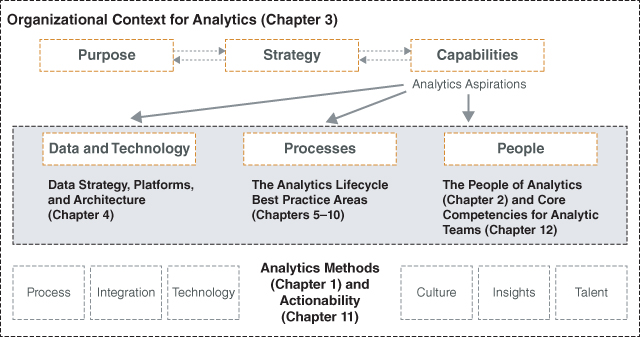CHAPTER 13The Future of Analytics
…throughout the whole history of science most of the really great discoveries which had ultimately proved to be beneficial to mankind had been made by men and women who were driven not by the desire to be useful but merely the desire to satisfy their curiosity.
—Richard Feynman, Nobel Laureate
THE ANALYTICS LIFECYCLE AS A FRAMEWORK
Arguably, there are many ways to think about the topic of analytics. My purpose in writing this book has been to present ideas that will help analytics professionals solidify their own thinking about key concepts and how they can be applied.
The framework for analytics and the associated best practices offered here are based on my own trial-and-error efforts at explaining these concepts to both clients and students. In a nutshell, that framework is presented in Figure 13.1.

Figure 13.1 The linkage between analytics strategy and execution
These important lessons for all of us are described throughout this book:
- Analytics strategy should be rooted in the overall organizational strategy.
- Our analytics aspirations should be rooted in the capabilities derived from that strategy.
- What we need to be good at—our analytics capabilities—is a direct result of our purposeful effort at defining those capabilities.
- The role of analytics leadership is to manage the alignment between people, process, technology, and data; ...
Get The Analytics Lifecycle Toolkit now with the O’Reilly learning platform.
O’Reilly members experience books, live events, courses curated by job role, and more from O’Reilly and nearly 200 top publishers.

